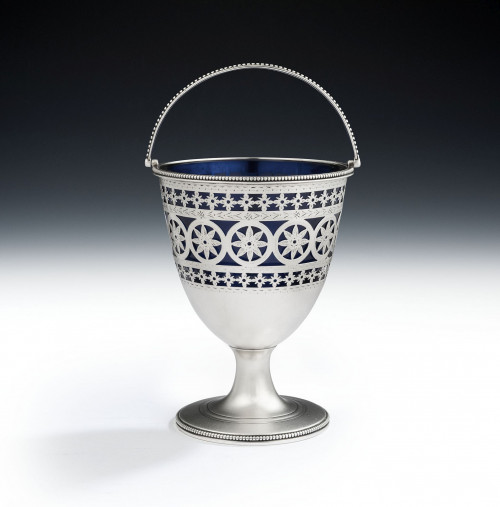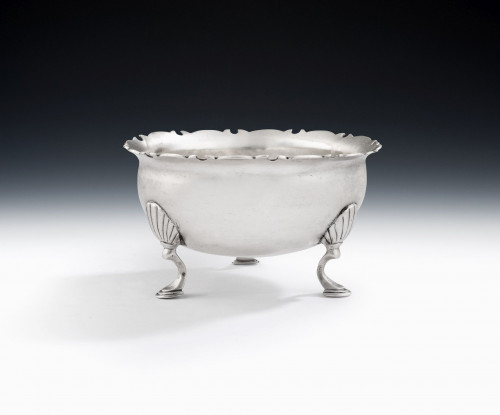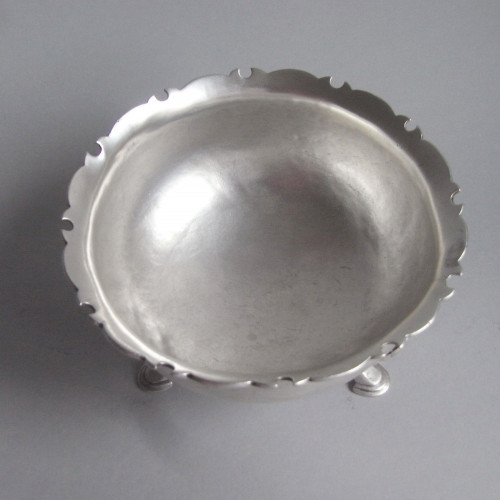- Home
- British Silver 1760-1830
- The Spencer Argyle from the Bateman workshops. An important George III Argyle made in London in 1806 by Peter & William Bateman.
The Spencer Argyle from the Bateman workshops. An important George III Argyle made in London in 1806 by Peter & William Bateman.
The Spencer Argyle from the Bateman workshops. An important George III Argyle made in London in 1806 by Peter & William Bateman.
374581
This is a particularly unusual example in its design. The main body stands on an oval pedestal foot decorated with reeding and an outer band of foliate motifs. The oval vase shaped main body is engraved with an upper frieze of foliate motifs, all above herring bone garlands, tied with bows. This piece has a slender "Swan Neck" Spout, engraved with foliate designs on the underside, and the scroll shaped fruit wood handle is attached to the main body with tubular silver sockets. The slightly domed pull-off cover terminates in a fruitwood finial and is engraved with the same foliate motifs which are seen on the main body. This beautiful piece was made in the famous Bateman workshops, by Peter & William Bateman, son and grandson of the famous Hester, almost certainly the most famous Lady silversmith of the Georgian period.
The front of the main body is engraved with a contemporary shield shaped Armorial, with Crest engraved on the cover above. The Armorial and Crest are those of the Spencer family of Yarnton, County Oxon. Their family branches are the Earls Spencer of Althorp, Earls of Sunderland and Dukes of Marlborough. The Dukes bore the surname of Spencer until 1887 when the principal surname of Churchill, which the family bear now, was assumed. This example is unusual as it has a central interior conical heating compartment, with silver cover, where hot water, coal or a hot iron rod would have been placed to keep the contents warm. This piece is in excellent condition and is fully marked on the underside of the foot, on the rim of the cover and with the sterling mark and date letter on the rim of the cover of the central interior conical section.
Argyles are generally accepted to have been containers for gravy or sauce, the design incorporating some form of heat preserving element. The credit for inventing these pieces goes to Archibald Campbell, 3rd Duke of Argyll, as he and his Duchess became tired of their sauces arriving cold at the table in Inverary Castle. Apainting of the 3rd Duke by Allan Ramsay, and an image of the castle, are attached.
Length, handle to spout: 9.5 inches.
Width: 4.1 inches.
Height: 6.75 inches.
Weight: 14oz.
Thank you for your enquiry.
We will get back to you soon.
Please create wishlist to add this item to
RELATED ITEMS




























